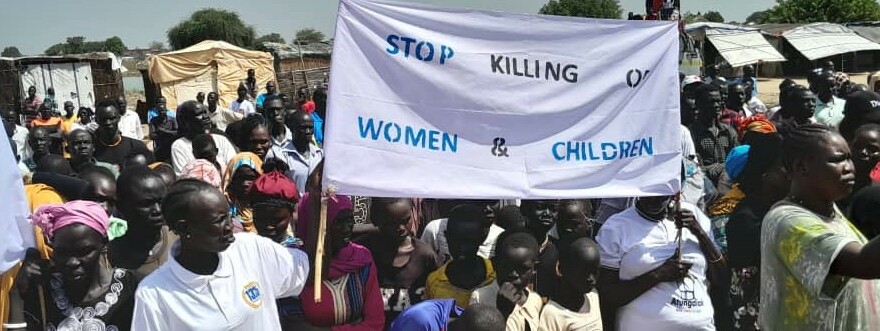The Abyei Civil Society Organization (ACSO) is calling for the withdrawal of the South Sudan People’s Defense Forces (SSPDF) and the Sudan Armed Forces (SAF) from the disputed Abyei region.
In a position paper shared with Radio Tamazuj on Saturday, the people of the Abyei Special Administrative Area protested against what they perceive as the “explicit failure of UNISFA in protecting Ngok Dinka.”
The ACSO Secretary for Information highlighted concerns about the presence of SSPDF in certain areas in Abyei and SAF in Diffra. They argue that these deployments compromise UNISFA’s mandate to protect civilians and represent a violation of the agreement adopted by the United Nations Security Council in resolutions No. 1990 (2011).
“We, the Ngok Dinka, demand the immediate withdrawal of the South Sudan People’s Defense Forces (SSPDF) and the Sudan Armed Forces (SAF) from Abyei. Our statement reflects the collective sentiment of the community, as we have mobilized from all villages and areas of Abyei to express our deep dissatisfaction and frustration with the repeated failure of UNISFA to protect the lives of innocent civilians,” the statement declares.
“The ongoing series of deadly attacks on Ngok Dinka villages have resulted in the death and injury of hundreds of civilians, predominantly women and children. The recent attacks on the villages of Ayuok, Athony, Malual Aleu, Ka-dhian, Nyiel, Angot Wuncuei, and Wunpeeth have left more than 47 people dead and 34 people wounded,” the letter details.
Miyen Ayuong Ajuong, the spokesperson for Abyei Civil Society, told Radio Tamazuj on Sunday that the presence of the South Sudan People’s Defense Forces (SSPDF) in Agok town and other areas south of the River Kiir constitutes a violation. Ajuong asserted that the SSPDF, along with the Sudan Armed Forces (SAF) in Abyei, should be withdrawn.
“This stance is not solely that of ACSO but reflects the sentiment of the entire Ngok Dinka population in Abyei. We are discontent and unwilling to accept the situation affecting innocent civilians in Abyei. Civilians are being attacked and killed, especially with the SSPDF spreading in the south of River Kiir. Their involvement in certain attacks, facilitated by Twic armed youth and other militia forces, is a cause for concern. The SSPDF should function as a national army protecting all inhabitants of South Sudan,” he emphasized.
He further criticized the current UNISFA commander, asserting that Major General Benjamin Olufemi Sawyerr is ineffective in leading UNISFA. According to him, the mission commander has failed in his responsibilities.
He stated, “The 20 June 2011 agreement stipulated that Abyei should remain a weapons-free zone under regional protection, such as that provided by UNISFA. However, Major General Sawyerr is unable to effectively lead UNISFA. Therefore, the Nigerian and Ghanaian peacekeepers must be replaced by other forces capable of ensuring civilian protection.”
Meanwhile, Bulis Koch, Abyei’s Minister of Information, acknowledged the existence of the protest letter. He clarified, “Abyei’s people, through civil society organizations, have expressed their protest in a peaceful manner. The government is not involved in the protest. Civil society has the right to voice their frustrations, and we do not condone any harm or aggression towards foreign personnel.”
Sudan and South Sudan are still disputing the oil-rich Abyei area. The two countries have yet to agree on the border mapping since South Sudan seceded from Sudan in 2011.
The United Nations Interim Security Force for Abyei (UNISFA) was deployed in June 2011 to protect civilians under the imminent threat of physical violence.




